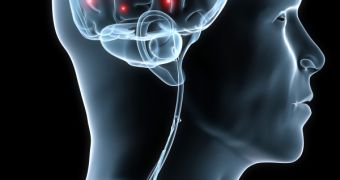A study led by scientists from the French National Center for Scientific research in Grenoble and published in the Proceedings of the National Academy of Sciences on November 26 discloses the mysteries of the brain activity during coma.
The study shows that coma patients experience a considerable reorganization of the functional hubs of brain and that the explanation of these hubs' behavior may provide a key for the understanding of human consciousness.
“Consciousness may depend on the anatomical location of these hubs in the human brain network,” said Sophie Achard, a researcher at the French National Center for Scientific research, Grenoble co-author of the study, as cited by LiveScience.
The research consisted of comparatively analyzing MRI brain scans of 17 coma patients and those of 20 healthy volunteers.
Scientists observed 417 different areas of the brain in order to determine their blood flow, which is a sign of the brain's activity. Afterwards they compared enhancement and reduction of the blood flow in the distinct areas.
Unlike the healthy patients, the coma ones registered a significant darkness of the high-traffic hubs and an intensification of the normally secondary ones.
It has been noted that coma patients had a lower number of hubs in the precuneus, a brain area responsible for humans' memory and consciousness.
“It gives us a handle on what may be different between healthy conscious people and people who have loss of consciousness,” declared Olaf Sporns, a neuroscientist at the Indiana University.
“The traffic patterns have totally reorganized. And maybe it's the rerouting of the traffic patterns that underlies the loss of consciousness.”
Scientists underline the importance of the discovery for the further research on the coma phenomenon. They say understanding the brain's activity during coma may help doctors judge a patient's possibility to overcome coma by noting high-traffic hubs' activity.
They hope the finding could even make possible an acceleration of the coma overcome through stimulations performed on certain brain regions.

 14 DAY TRIAL //
14 DAY TRIAL //